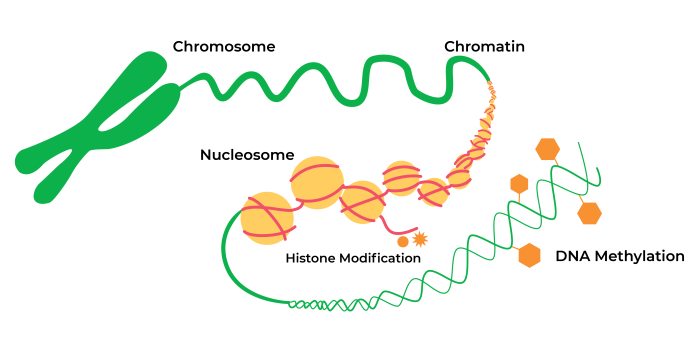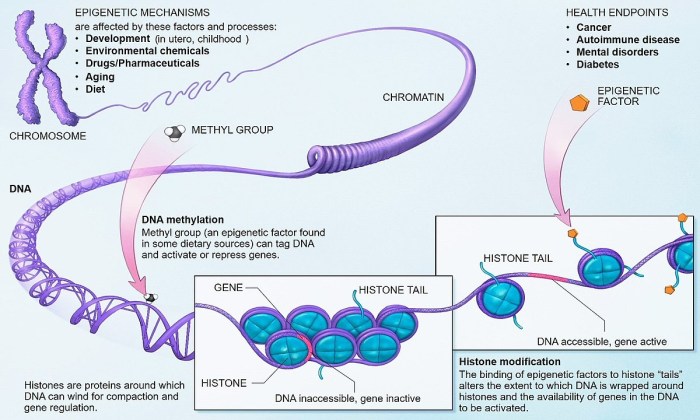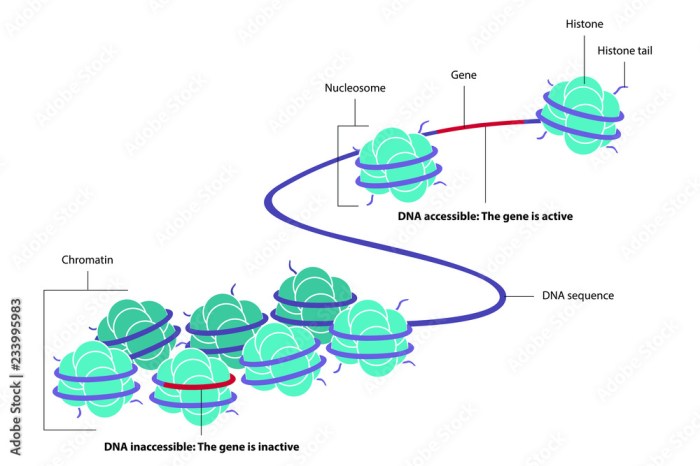Which of the following statements is true about epigenetics? Epigenetics is the study of heritable changes in gene expression that do not involve changes in the DNA sequence. Epigenetic modifications can be caused by a variety of factors, including environmental factors such as diet, toxins, and stress.
Epigenetic changes can have a significant impact on gene expression and can contribute to the development of a variety of diseases, including cancer, neurodegenerative disorders, and autoimmune diseases.
Epigenetics is a rapidly growing field of research, and there is still much that we do not know about how epigenetic modifications work. However, the research that has been done so far has shown that epigenetics plays a significant role in our health and development.
1. Definition and Overview of Epigenetics: Which Of The Following Statements Is True About Epigenetics

Epigenetics refers to heritable changes in gene expression that do not involve alterations in the DNA sequence itself. These changes are mediated by various mechanisms, including DNA methylation, histone modifications, and non-coding RNAs.
Epigenetic modifications can affect gene expression by altering the accessibility of DNA to transcription factors. For instance, DNA methylation typically leads to gene silencing by preventing transcription factors from binding to the DNA. Conversely, histone acetylation and methylation can promote gene expression by making the DNA more accessible.
2. Epigenetics and the Environment
Environmental factors play a crucial role in shaping epigenetic patterns. Experiences, diet, and exposure to toxins can all influence epigenetic modifications.
For example, early-life stress has been linked to increased DNA methylation in the hippocampus, a brain region involved in memory and learning. Conversely, a healthy diet rich in fruits and vegetables has been associated with favorable epigenetic changes, such as increased histone acetylation.
3. Epigenetics and Disease
Epigenetic alterations have been implicated in the development and progression of various diseases, including cancer, neurodegenerative disorders, and autoimmune diseases.
In cancer, for instance, abnormal DNA methylation patterns can lead to the silencing of tumor suppressor genes and activation of oncogenes. Similarly, in neurodegenerative diseases such as Alzheimer’s, histone modifications have been linked to the accumulation of amyloid plaques and tau tangles in the brain.
4. Epigenetics and Inheritance, Which of the following statements is true about epigenetics
The extent to which epigenetic modifications can be inherited across generations is a topic of ongoing research.
While some epigenetic changes are reset during development, others can be passed down from parents to offspring. This phenomenon, known as transgenerational epigenetic inheritance, has been observed in animals and plants, and its implications for human health are being explored.
5. Epigenetics and Therapy
Epigenetics holds promise for developing novel therapeutic approaches.
By targeting epigenetic modifications, it may be possible to prevent or treat diseases. For instance, drugs that inhibit DNA methyltransferases have been shown to reactivate tumor suppressor genes in cancer cells.
6. Epigenetics in Research
Epigenetic techniques are widely used in scientific research.
Epigenetic profiling can provide insights into gene regulation, disease mechanisms, and personalized medicine. For example, DNA methylation arrays can be used to identify epigenetic biomarkers for disease diagnosis and prognosis.
Questions and Answers
What is epigenetics?
Epigenetics is the study of heritable changes in gene expression that do not involve changes in the DNA sequence.
What are some examples of epigenetic modifications?
Some examples of epigenetic modifications include DNA methylation, histone modification, and non-coding RNA.
How can environmental factors affect epigenetic modifications?
Environmental factors such as diet, toxins, and stress can affect epigenetic modifications.
What is the role of epigenetics in disease?
Epigenetics can play a role in the development of a variety of diseases, including cancer, neurodegenerative disorders, and autoimmune diseases.
What is the potential of epigenetics in therapy?
Epigenetics has the potential to lead to the development of new ways to prevent and treat a variety of diseases.


